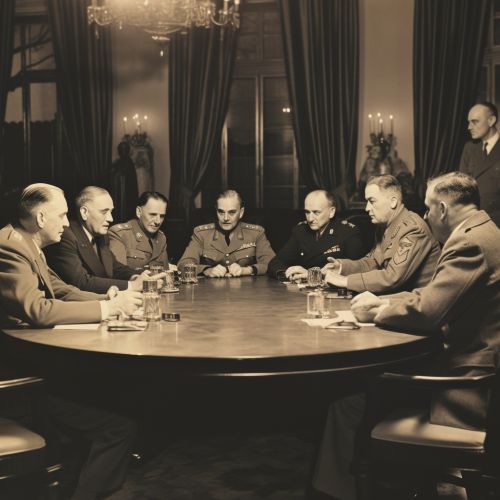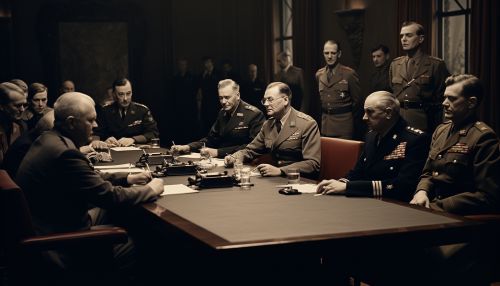Potsdam Conference
Background
The Potsdam Conference was a meeting of the Allied Powers at the end of World War II. The conference took place in Potsdam, Germany from July 17 to August 2, 1945. The three main leaders present were Joseph Stalin of the Soviet Union, Winston Churchill and later Clement Attlee of the United Kingdom, and Harry S. Truman of the United States.


Purpose of the Conference
The main purpose of the conference was to decide how to administer Germany, which had agreed to unconditional surrender nine weeks earlier, on May 8. The goals of the conference also included the establishment of post-war order, peace treaty issues, and countering the effects of the war.
Key Decisions
The leaders made several key decisions during the Potsdam Conference. These included the demilitarization, denazification, democratization, and decentralization of Germany. They also agreed to the prosecution of Nazi war criminals and the establishment of the Oder-Neisse line as the border between Germany and Poland.
Impact and Legacy
The Potsdam Conference had a significant impact on post-war Europe. The decisions made at the conference shaped the geopolitical landscape of Europe and set the stage for the Cold War. The conference also marked the beginning of tensions between the Allies, particularly between the United States and the Soviet Union.
